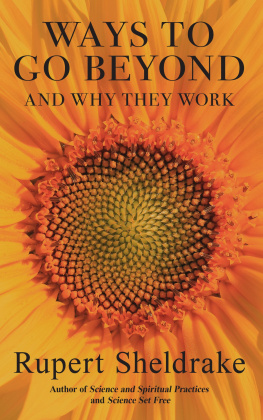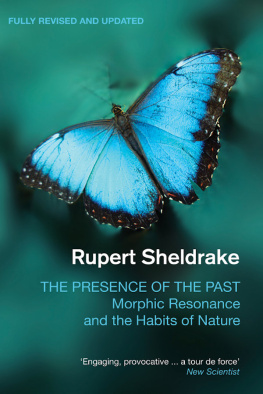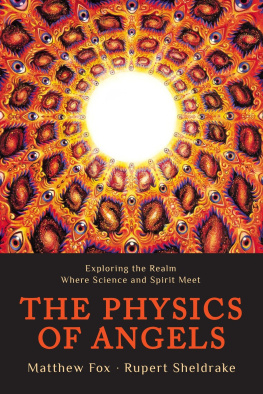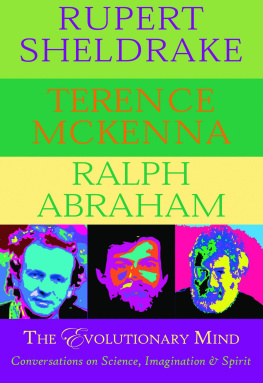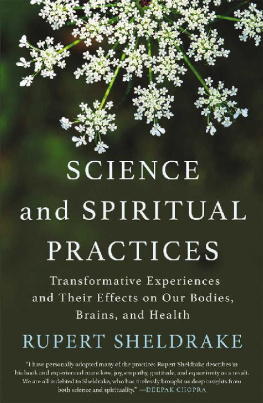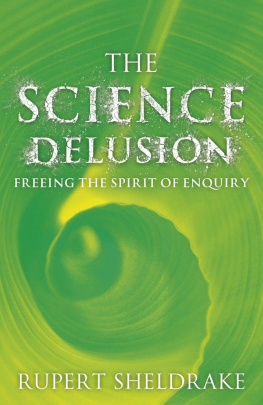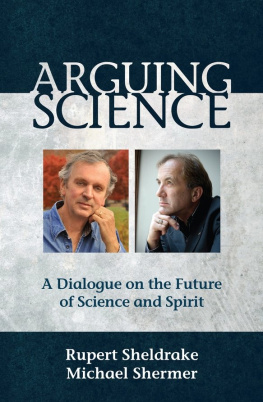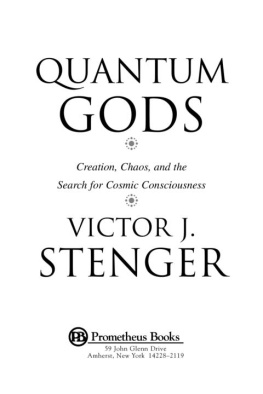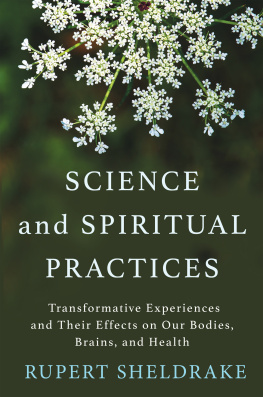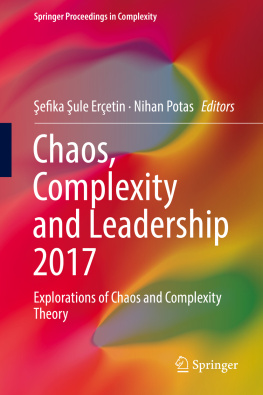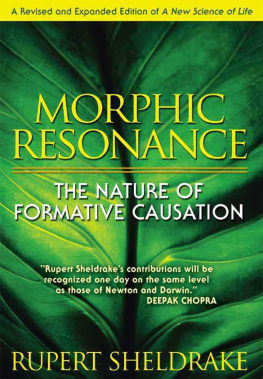
|
Terence McKenna (l), Ralph Abraham (c), and Rupert Sheldrake (r). |
Chaos,
Creativity,
and Cosmic
Consciousness

Rupert Sheldrake,
Terence McKenna,
and Ralph Abraham
Foreword by Jean Houston

To Esalen
Acknowledgments
We are grateful to Esalen Institute, especially Nancy Kaye Lunney and Steve Donovan, for the hospitality and encouragement that made this project possible and to Paul Herbert and Marty Schrank for their excellent recordings. We are also deeply indebted to Jill Purce for leading the chants with which we began each trialogue. Finally, we would like to acknowledge the extraordinary support of the Bear & Company staff, in particular, Barbara Hand Clow for her excellent editorial suggestions; Ralph Melcher for his sensitive editing and supportive enthusiasm; Gail Vivino for her fine-tuning and careful copyediting; and Barbara Doern Drew for her creative approach to production.
Contents
The new evolutionary cosmology. The regularities of nature as evolving habits. The basis of cosmic creativity. The cosmic imagination as a higher-dimensional attractor drawing the evolutionary process toward itself. The Omega Point. Imagination welling up from the womb of chaos. Psychedelic experience and the mind of Gaia. Gaian dreams and human history. Dark matter as the cosmic unconscious.
The chaos revolution. Chaotic attractors as eternal mathematical realities. Indeterminism in nature. Chaos and the evolution of order. Form in the cooling process. The organizing fields of nature as related to mathematics and the cosmic imagination. Mathematical models. Attractors, attraction, and motivation. The freezing of information in crystals and in written language. The primacy of spoken language and abstraction.
Chaos in Greek mythology. The myth of the conquest of chaos. Fear of chaos and the suppression of the feminine. The partnership society and the rise of patriarchy. Seasonal festivals of the repression of chaos, and the creation of the unconscious. The inhibition of creativity and its relation to global problems. The Eleusinian mysteries. Creativity and Christology. Plans for the recovery of chaos and the imagination. The significance of the chaos revolution.
Randomness in the evolutionary process. The limited nature of models. The computer and chaos revolutions. Coevolution of mathematics and the material world. The mathematical landscape. Sensory qualities in the cosmic imagination. The similarities of souls and fields. The primal unified field and the fields of nature. Rebirth of the world soul. Interplanetary transfer of the human psyche via the psychedelic experience and the spores of magic mushrooms.
Physical light and the light of consciousness. Light and vision. The location of visual images. Mind extending from the eyes. The sense of being stared at: a new kind of field or the electromagnetic field? Hierarchy of fields in nature. Coupling between electromagnetic and mental fields. Physical light and self-luminous visions. Tryptamine hallucinogens. The world soul. Fields as the medium of divine omniscience. Gaian mind and the light of the sun.
Discarnate intelligences and nonhuman entities: creatures within the human mind or truly Other? Entities and shamans. The use of language by entities. Angelic communication in the birth of modern science. The dream dimension and entities. The effect of science and humanism on entities. Nature magically self-reflecting and aware.
The three great bifurcations. Creation of the unconscious, the origin of evil, and the rejection of chaos. Escape from evil by the resurrection of chaos. The suppression of psychedelics, the patriarchy, and the rise of booze. Partnership and dominator drugs; the addiction to addictions. Habits and the formation of the unconscious. Holidays and the reinforcement of awareness. Prayer, magic, and astrology for enlightenment.
Ralphs religious background. The sacred in India. Rediscovering the sacred in the West. The revival of ritual and the resacralization of music. Feminism and the archaic revival. Gothic cathedrals and animistic Christianity. The green movement, saving the Earth, the greening of God. Psychedelic churches. The resacralizing of science.
Education as initiation. The dominance of rationalism and humanism. Rites of passage. Summer camps. Testing and accreditation. Institutions and administrations. Workshops as a model for a new pluralistic and decentralized system of education. Religious initiations. Reform of existing professions. A possible pilot project.
The apocalyptic tradition: a mythic model motivating religious history or an intuition of the ending of history or time? Modern millenarianism and scientific versions of the apocalypse. The possible end in 2012. The self-fulfilling quality of apocalyptic prophecy. The speeding up of history and the inevitability of planetary metamorphosis. Death and transformation on a cosmic scale. Intensifying conflict and the power of faith.
Illustrations
Foreword
When I was quite a young child, my father, a comedy writer, invited me to go with him to deliver a script to the ventriloquist Edgar Bergen, whose weekly radio show he was writing at that time. Bergens chief dummy, Charlie McCarthy, was one of the best-loved characters in radio comedy and was featured in many movies as well. He was also my very dear friend, and when he was sitting on Bergens knee, we would have many sprightly and madcap conversations.
When Dad and I entered the open door of Bergens hotel room, we found him sitting on a bed with his back to us, talking very intently to Charlie and then listening with evident wonder and astonishment to Charlies answers. Unlike in the radio programs, there was no flippancy here, no in-on joke sarcasm. Indeed, one got the impression that Bergen was the student, while Charlie was quite clearly the teacher.
What are they doing? I silently mouthed at my, father. Just rehearsing, he mouthed back. But as we listened to what Bergen and Charlie were saying, we soon realized that this was no rehearsal for any radio program we ever knew about, for Bergen was asking his dummy ultimate questions like What is the meaning of life? What is the nature of love? Is there any truth to be found? And Charlie was answering with the wisdom of millennia. It was as if all the great thinkers of all times and places were compressed inside his little wooden head and were pouring out their distilled knowings through his little clacking jaws.
Bergen would get so excited by these remarkable answers that he would ask still more ultimate questions: But, Charlie, can the mind be separate from the brain? Who created the universe, and how? Can we really ever know anything? Charlie would continue to answer in his luminous way, pouring out pungent, beautifully crafted statements of deep wisdom. This rascally faced little dummy dressed in a tuxedo was expounding the kind of knowing that could have come only from a lifetime of intensive study, observation, and interaction with equally high beings. After several minutes of listening spellbound to this wooden Socrates, my father remembered his theological position as an agnostic Baptist and coughed. Bergen looked up, turned beet red, and stammered a greeting. Hello, Jack. Hi, Jean. I see you caught us.
Yeah, Ed, my father said. What in the world were you rehearsing? I sure didnt write that stuff.
Next page

